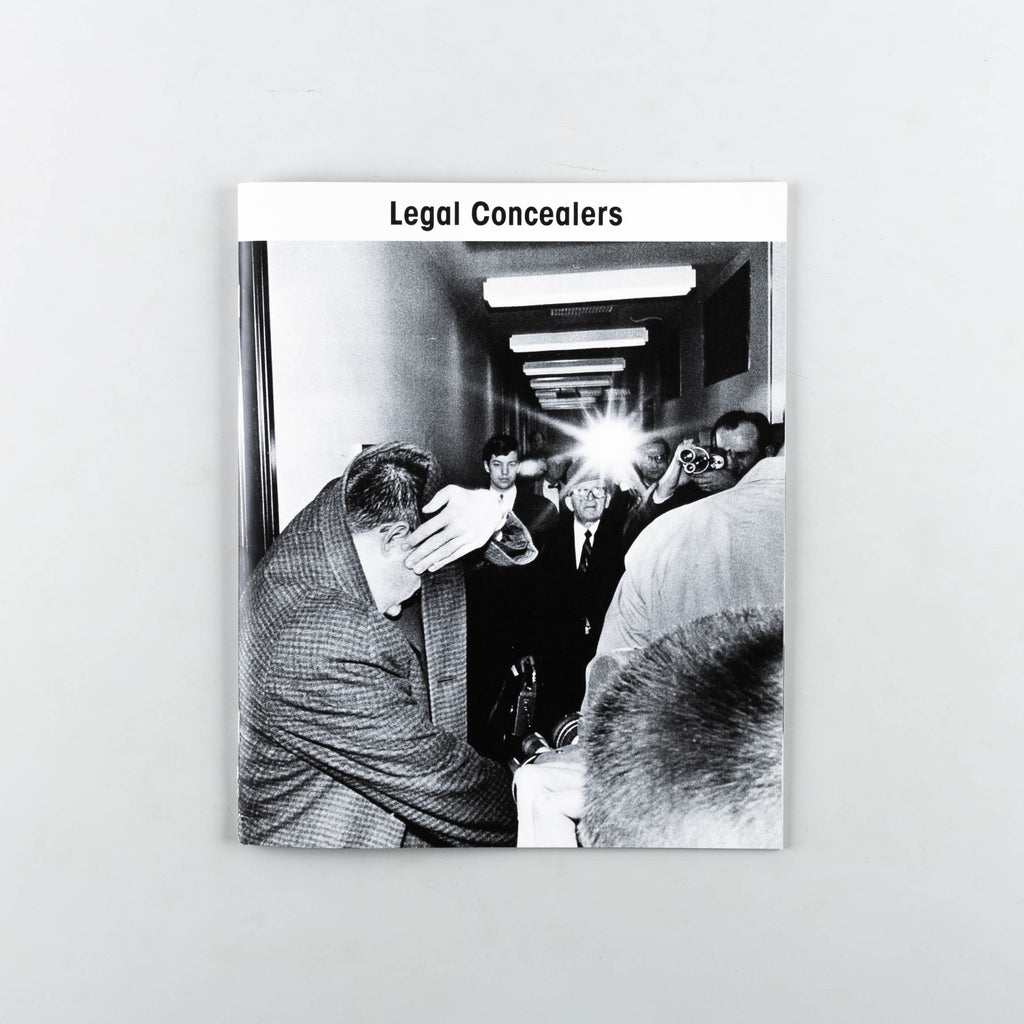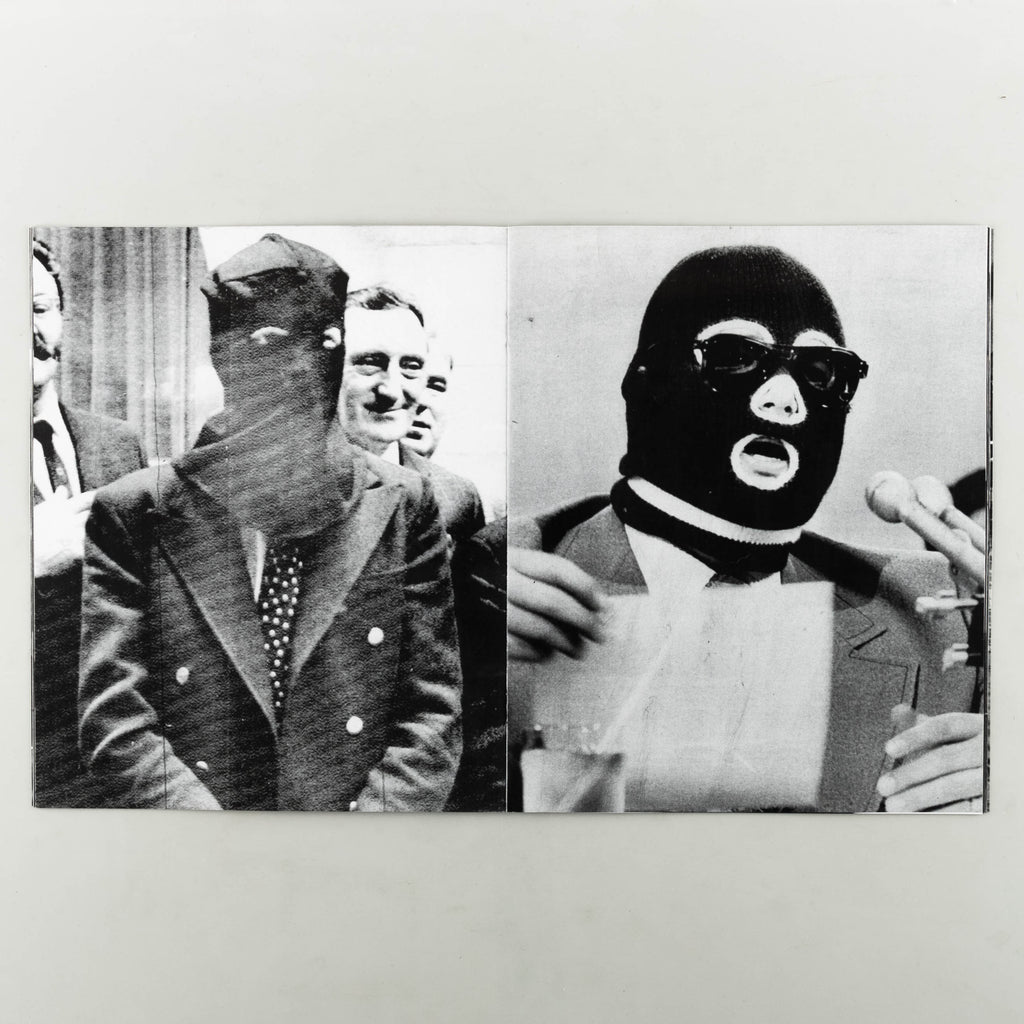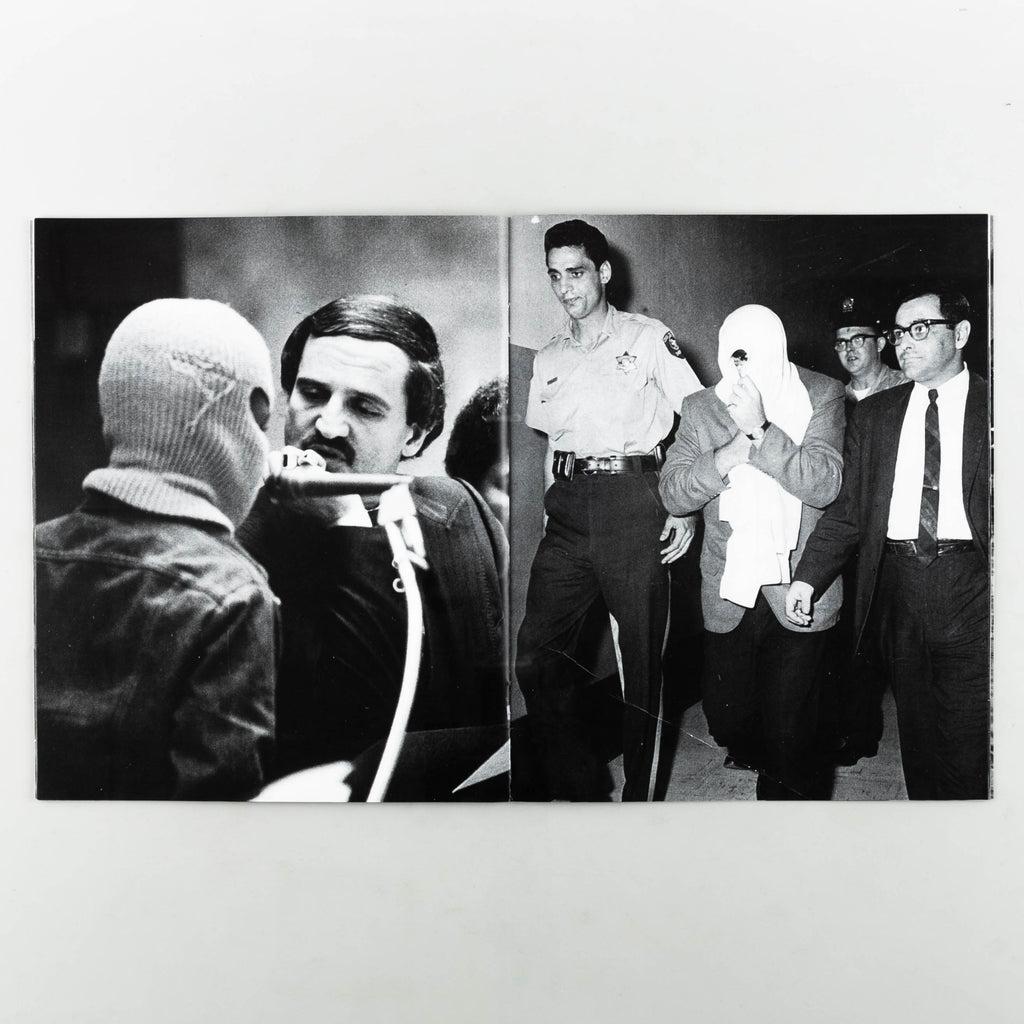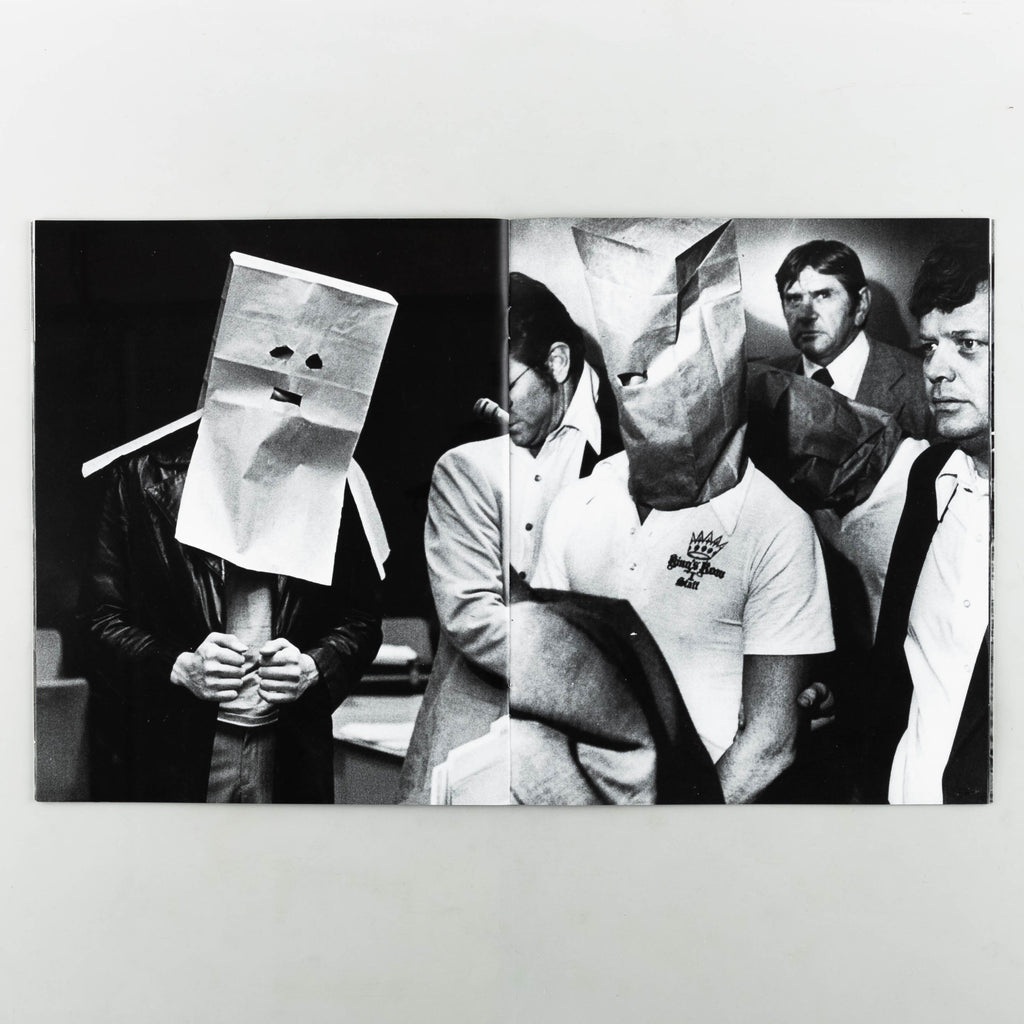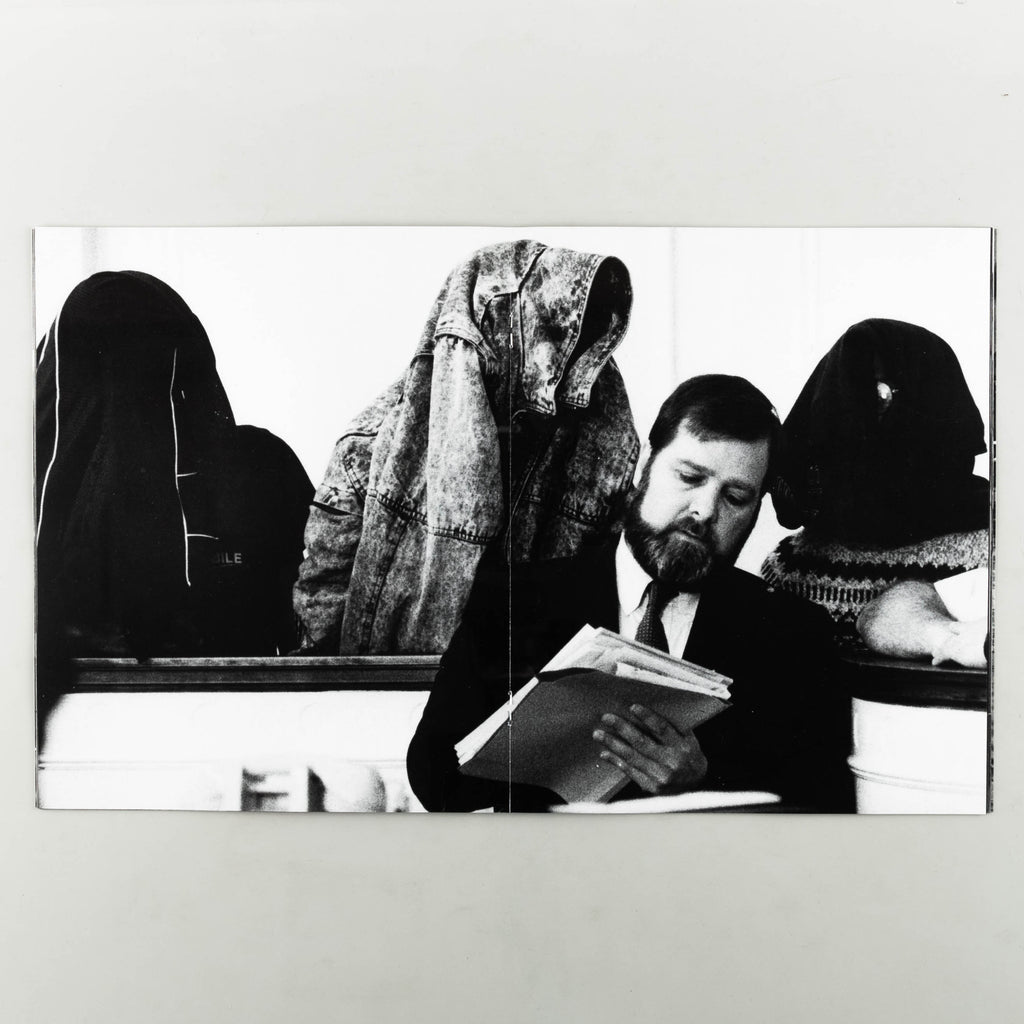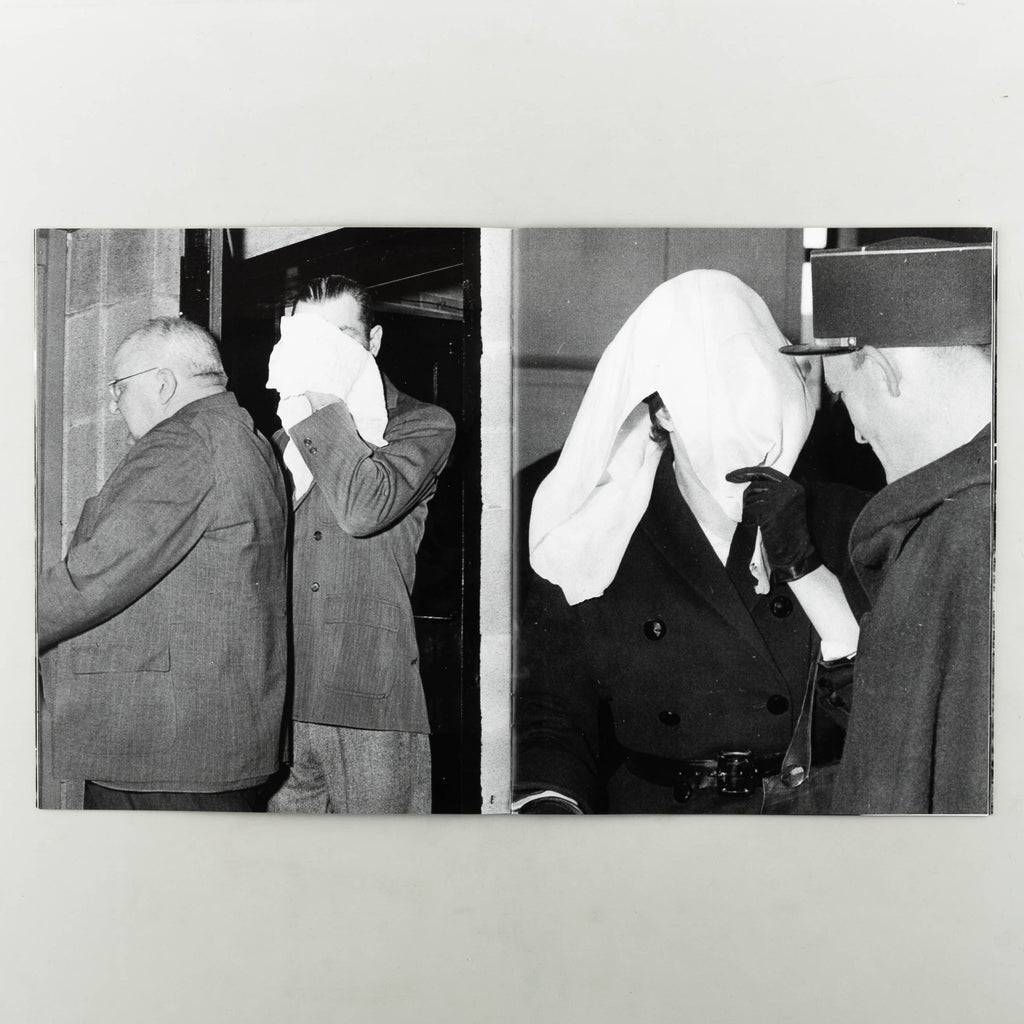Legal Concealers
Marc Fischer / Public Collectors
£12.00
With Legal Concealers, Public Collectors continues their exploration of the court system with a new focus on historical press photos. Printed on heavy stock with no page numbers, each cropped image gets the full page for maximum power.
This publication explores efforts by photojournalists to capture the faces... Read More
With Legal Concealers, Public Collectors continues their exploration of the court system with a new focus on historical press photos. Printed on heavy stock with no page numbers, each cropped image gets the full page for maximum power.
This publication explores efforts by photojournalists to capture the faces of people as they experience being arrested, transported to and from court or jail, or appearing in court. Only photos where the subject has concealed their face from the camera have been included. These photos include suspects, people who have been charged with or convicted of crimes, witnesses, law enforcement agents involved in sting operations, and informants.
"I purchased these discarded press photos from multiple dealers on the secondary market. The trope of a person covering their face in these legal situations is common in photojournalism and these images were not hard to find. The photos span from 1945-1990 and primarily come from newspapers in the US, as well as a small number of photos from the UK, France and Germany. Nearly all of these photos have printed information or news articles about the people and cases they represent pasted on the back. I deliberately withheld the names of the subjects, photographers, newspapers, years, places, and crimes connected to each photo because I do not believe the subjects consented to being photographed and those details are not the point of this collection.
Some questions to consider while turning these pages: How can we use photos from the past to reflect on the present and change the future? How do these photos make you feel? Are these photos useful for telling the story of a crime? What moral and ethical guidelines do photojournalists and newspapers observe in taking and printing photos of people avoiding the camera? Do the photographers desire the element of mystery that is created when the subjects conceal their faces? Did the photographers know they were repeating a common trope when they took these photos? Does hiding one’s face in court or in public influence the outcome of a case? What do we want from photojournalism and from our court system?"
— Marc Fischer / Public Collectors
This publication explores efforts by photojournalists to capture the faces of people as they experience being arrested, transported to and from court or jail, or appearing in court. Only photos where the subject has concealed their face from the camera have been included. These photos include suspects, people who have been charged with or convicted of crimes, witnesses, law enforcement agents involved in sting operations, and informants.
"I purchased these discarded press photos from multiple dealers on the secondary market. The trope of a person covering their face in these legal situations is common in photojournalism and these images were not hard to find. The photos span from 1945-1990 and primarily come from newspapers in the US, as well as a small number of photos from the UK, France and Germany. Nearly all of these photos have printed information or news articles about the people and cases they represent pasted on the back. I deliberately withheld the names of the subjects, photographers, newspapers, years, places, and crimes connected to each photo because I do not believe the subjects consented to being photographed and those details are not the point of this collection.
Some questions to consider while turning these pages: How can we use photos from the past to reflect on the present and change the future? How do these photos make you feel? Are these photos useful for telling the story of a crime? What moral and ethical guidelines do photojournalists and newspapers observe in taking and printing photos of people avoiding the camera? Do the photographers desire the element of mystery that is created when the subjects conceal their faces? Did the photographers know they were repeating a common trope when they took these photos? Does hiding one’s face in court or in public influence the outcome of a case? What do we want from photojournalism and from our court system?"
— Marc Fischer / Public Collectors
